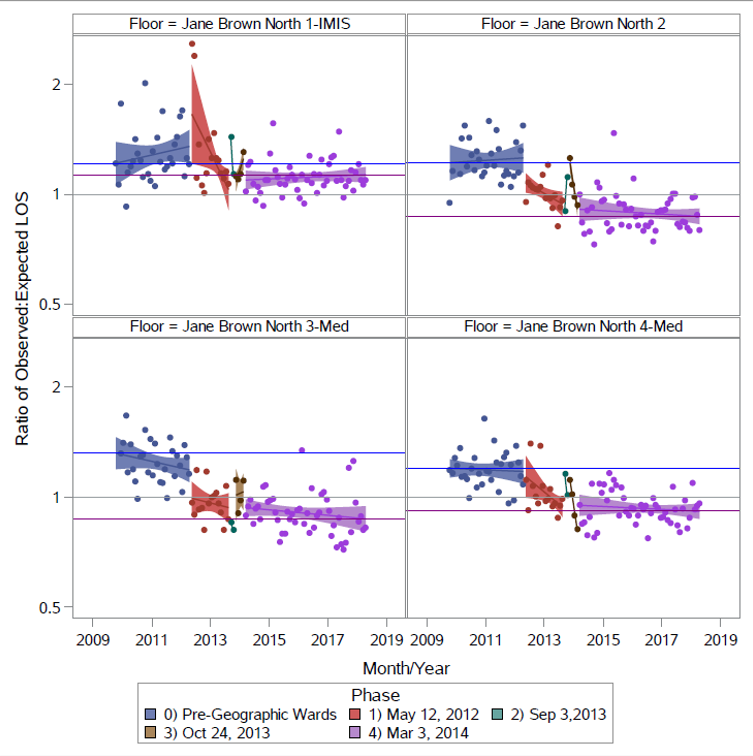Background: Geographic decentralization of inpatient teaching teams has been shown to impair physician-nurse communication and efficiency of care. Reliance upon paging or messaging increases probability of miscommunication. Importantly, the inclusion of nurses as integral members of the care team cannot be fully realized in the absence of consistent provider presence on the unit.
Purpose: Prior to 2014, Inpatient Services at a large urban academic medical center were disbursed throughout multiple buildings and nursing units. During the 2014-2015 academic year, geographic cohorting of teams was implemented, localizing each team to a single nursing unit. Length of Stay (LOS) data on Observed LOS (OLOS) and Expected LOS (ELOS) are reported monthly for each floor. We compared LOS data for geographic cohorted teams to that of a non-teaching service which did not undergo geographic localization during the same time period.
Description: All floors demonstrated reduction in OLOS during the study period, though geographic teaching service floors demonstrated a much greater magnitude of reduction after cohorting. The O:E ratio likewise dropped by a greater magnitude on cohorted floors, remaining consistently below 1.0 since the intervention, while the control floor with multiple physician providers continued to demonstrate an O:E ratio above 1.0
Conclusions: This single institution study is the first to demonstrate that geographic localization of inpatient teaching services reduces LOS to a significant degree. In addition to the reduction in LOS, the authors also observed substantial qualitative benefits of geographic localization on patient care, communication and interprofessional team work.


